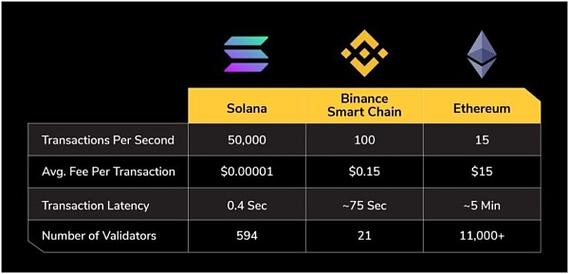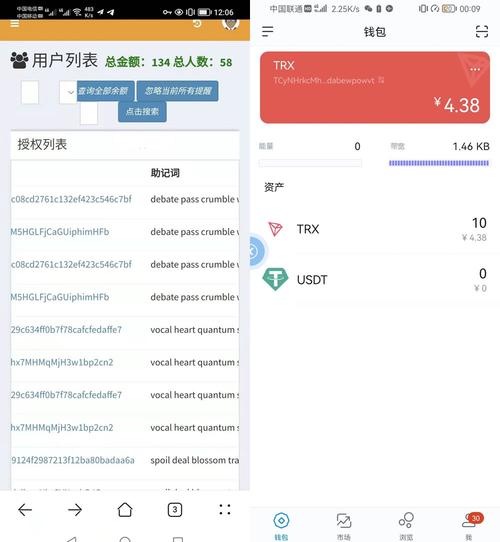Understanding Binance, QTUM, and ETH: A Comprehensive Guide
Binance, QTUM, and ETH are three significant players in the cryptocurrency world. Whether you’re a seasoned investor or just dipping your toes into the market, understanding these assets is crucial. Let’s delve into what each of these entities represents and how they interact with each other.
Binance: The Global Cryptocurrency Exchange
Binance is one of the largest cryptocurrency exchanges in the world, offering a wide range of trading pairs and services. Founded in 2017 by Changpeng Zhao, Binance has become a go-to platform for traders looking to buy, sell, and trade cryptocurrencies. Here’s a breakdown of what Binance offers:

- Trading Pairs: Binance supports over 1,000 trading pairs, allowing users to trade a vast array of cryptocurrencies.
- Spot Trading: Users can trade cryptocurrencies against fiat currencies or other cryptocurrencies on the spot market.
- Margin Trading: Binance offers margin trading, allowing users to borrow funds to increase their trading positions.
- Derivatives Trading: Binance also provides derivatives trading, including futures and options, for advanced traders.
- Staking and Savings: Users can earn interest on their holdings by participating in Binance’s staking and savings programs.
Binance has a user-friendly interface and offers a range of tools to help traders make informed decisions, such as price alerts, trading charts, and market data.
QTUM: The Hybrid Blockchain Platform
QTUM is a blockchain platform that aims to bridge the gap between traditional financial systems and the decentralized world. It combines the security of Bitcoin’s UTXO model with the flexibility of the Ethereum Virtual Machine (EVM). Here’s a closer look at QTUM:
- Hybrid Blockchain: QTUM’s unique hybrid blockchain architecture allows it to leverage the security of Bitcoin’s UTXO model while also supporting smart contracts, like Ethereum.
- Smart Contracts: QTUM’s EVM compatibility enables developers to build decentralized applications (DApps) and smart contracts on the platform.
- Interoperability: QTUM aims to improve interoperability between different blockchain platforms, making it easier for developers to create cross-chain applications.
- Community Support: QTUM has a strong and active community, which contributes to the platform’s growth and development.
QTUM has gained attention for its potential to bridge the gap between traditional and decentralized finance, making it an interesting asset for investors looking to diversify their portfolios.
ETH: The King of Smart Contracts
Ethereum, often referred to as ETH, is the second-largest cryptocurrency by market capitalization. It’s known for its smart contract functionality, which has revolutionized the blockchain industry. Here’s what makes ETH unique:

- Smart Contracts: Ethereum’s primary innovation is the ability to execute smart contracts, which are self-executing contracts with the terms of the agreement directly written into lines of code.
- DApps: Ethereum has become the go-to platform for building decentralized applications, thanks to its robust smart contract capabilities.
- Gas Fees: Ethereum uses a gas fee system to ensure that the network remains efficient and scalable. Users pay gas fees for transactions and smart contract executions.
- Upgrades: Ethereum has undergone several upgrades, including the much-anticipated Ethereum 2.0 upgrade, which aims to improve scalability and reduce gas fees.
Ethereum’s widespread adoption and its role in the development of the decentralized finance (DeFi) ecosystem have made it a cornerstone of the cryptocurrency market.
Interactions Between Binance, QTUM, and ETH
Now that we’ve explored each entity individually, let’s look at how Binance, QTUM, and ETH interact with each other:
- Binance and QTUM: Binance offers QTUM trading pairs, allowing users to trade QTUM against other cryptocurrencies or fiat currencies. This makes it easier for investors to gain exposure to QTUM without leaving the Binance platform.
- Binance and ETH: Similarly, Binance offers ETH trading pairs, making it easy for users to trade ETH against other cryptocurrencies or fiat currencies. ETH is also a popular



